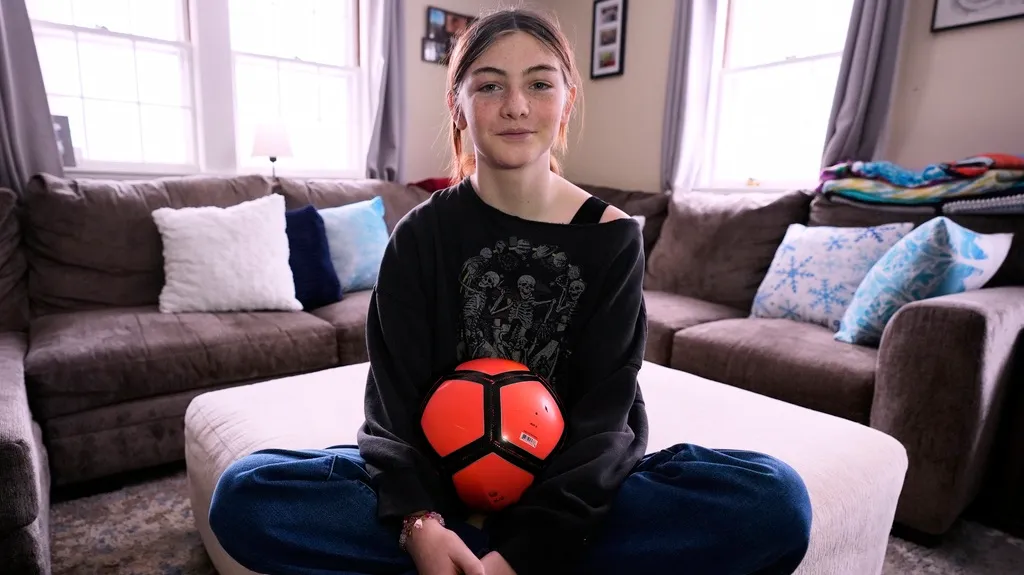June 24, 2012
National HIV Testing Day and Lifebeat Say 'Know Your Status!'
Daniel Scheffler READ TIME: 7 MIN.
Next week, June 27, is National HIV Testing Day (NHTD), an annual observance to promote HIV testing. This important day in contemporary society was founded in 1995 by the National Association of People with AIDS and continues to be an important part of not only fighting the stigmas surrounding AIDS but also to educate people across the world about the vital gravity of knowing your status. And even President Barack Obama is getting behind it.
"The president paid tribute to generations of lesbian, gay, bisexual and transgendered Americans who have devoted their lives to the fight for equality," said Grant Colfax, M.D., director of the Office of National AIDS Policy. Obama, who spoke at the White House's LGBT Pride Month reception on June 15, stressed the importance of getting tested, not only for high-risk citizens but also everyone else, and of the work that his Administration has done in terms of the National HIV/AIDS strategy and lift of the HIV entry ban.
"We'll get there because of all of the ordinary Americans who every day show extraordinary courage," said Obama proudly, as he mentioned the XIX international AIDS Conference coming up next month.
The president's plea for people to get tested is echoed by Anthony S. Fauci, M.D., director of National Institute of Allergy and Infectious Diseases at the National Institutes of Health, who said there are more than one million Americans living with the HIV infection and approximately one in five that are not aware.
"I recommend that everyone between the ages of 13 and 64 be tested for HIV at least once in their lifetime, and those at increased risk, such as gay and bisexual men, injection drug users, or persons with multiple sexual partners, should be tested at least annually," said Fauci.
Lifebeat Works to Promote HIV Testing
Testing, reinforced by National Testing Day, is crucial to ensure people with medical needs related to the virus are connected to medical care and then ongoing support. Lifebeat is an organization that promotes HIV testing and the importance of knowing your status. Dedicated to extending their voice to America's youth, Lifebeat is disseminating the message of preventing HIV. Utilizing the music and entertainment industries and their resources and talents, Lifebeat aims to bring awareness of the serious nature of HIV and to furnish aid to the HIV/AIDS community.
"We encourage the youth to defend their sexual health, their rights and their lives," said Erika Banks, acting executive director of Lifebeat.
Lifebeat started in 1992 when Bob Caviano, a music manager heavyweight, decided to write an editorial in Billboard Magazine exposing his illness and demanding measures of support from the industry. Lifebeat has since, with the support of the music industry, materialized as a crusader for prevention efforts aimed at the youth.
Banks says, "Lifebeat knew that music is so much part of youth culture," and thus has the power to reach youngsters in need. The current situation in the U.S. now affects more than 290,000 women in the United States, with women accounting for one in four new HIV diagnosis and deaths caused by AIDS.
Banks feels strongly about the importance of HIV Testing Day as more awareness and encouragement for status knowledge can significantly lower the number of people infected each year.
Lifebeat had its first concert fund-raiser at the Supper Club in New York, hosted by Cyndi Lauper and Yoko Ono. Subsequently, Lifebeat established various programs and concerts to further promote HIV awareness. A program called "Hearts & Voices" coordinates a network of hundreds of artists (and volunteers), who offer their time and talents, to entertain audiences in weekly or monthly performances at 10 HIV/AIDS facilities in New York.
The benefit "Beat Goes on IV," headlined by Latin music star Juanes on July 26 in Washington D.C., will celebrate the 20 year anniversary of the organization. One of the pre-celebrations recently was with Mary J. Blige. She joins the long list of incredible artists and entertainers the organization has worked with over 20 years including Billy Idol, Norah Jones, Alicia Keys, Ellen DeGeneres, Elton John and Ethan Hawke.
"In honor of this milestone anniversary, the concert is affiliated with the International AIDS Conference (IAC), which, for the first time in three decades, will take place in North America due to President Obama having lifted the ban on people with HIV traveling to the U.S.," said Lifebeat Board President Gary Dell'Abate.
Among medical professionals, the general consensus is that everyone needs to know his or her HIV status, as responsible citizens of this world. For instance, Jay Laudato, executive director at the Callen Lorde Community Health Center in New York, believes that "every day is testing day at Callen Lorde." The organization provides rapid HIV tests with all their health services, whether dental or sexual health.
"The sooner you know your status, the more you can be in control of your health," said Laudato.
"It is important that we maintain our resolve to end this epidemic. A new generation of Americans needs to be reached," adds Kevin Fenton, M.D., director at the National Center for HIV/AIDS, Viral Hepatitis, STD, and TB Prevention at the Centers for Disease Control and Prevention.
Fenton remains optimistic when talking about the virus, saying, "recent breakthroughs in HIV prevention like biomedical tools such as pre-exposure prophylaxis, microbicides and use of antiretroviral therapy for treatment and prevention may offer additional protection for people who are at high risk."
So the challenge ahead, for everyone, is to work cheek by jowl to promote testing to forge a truly AIDS-free generation
For more information about Lifebeat, visit lifebeat.org/ For a complete list of activities for National HIV Testing Day, visit www.aids.gov/awareness-days/national-hiv-testing-day/
Protect Yourself from HIV and other STIs
According to Lifebeat there are several steps you can take to protect yourself against HIV/AIDS and other STDs:
Abstinence: Simply choose not to have sex. Get more information about abstinence.
Sober Sex: If you're drinking or taking drugs, you are more apt to get into a situation where safer sex practices falter or fail altogether. If you have sex when you're sober, you're more likely to be safe.
Latex and Polyurethane Barrier Methods: Use safe sex materials such as male and female condoms, dental dams, and finger cots when engaging in sexual activity. Do not use male and female condoms at the same time!
Fewer Partners/Monogamy: The fewer sex partners you have, the more you reduce your risk of HIV infection.
Needle Exchange/Clean Your Works: Always use new, unused needles or clean your works by flushing the needle and plunger with water and bleach each time you use an intravenous drug syringe. Do not share other IV drug paraphernalia such as cookers cottons/filters, or water glasses. There are needle exchange programs available in your area where you can exchange used needles for new ones. For more information, visitwww.harmreduction.org
Pregnancy: If you are HIV positive and think you may be pregnant, you should contact your doctor immediately to discuss your options. There are medications that you can take during your pregnancy to reduce your baby's risk of being HIV positive.
Breastfeeding: HIV positive mothers should not nurse a child. HIV can be transmitted from mother to child via breast milk. Instead your physician will provide alternatives to nursing your baby.
Getting Tested: The only way to be sure of your HIV status is to get tested. With a rapid oral test, you can even get a cheek swab and get your results in as little as 20 minutes. If you test negative, your healthcare provider will provide tools that can help you remain that way. If you test positive, your healthcare provider can counsel you on methods used to prevent the spread of HIV.
Based between New York and Cape Town, Daniel Scheffler writes about socio political and travel matters and is working on a memoir. Follow him on Twitter @danielscheffler.





